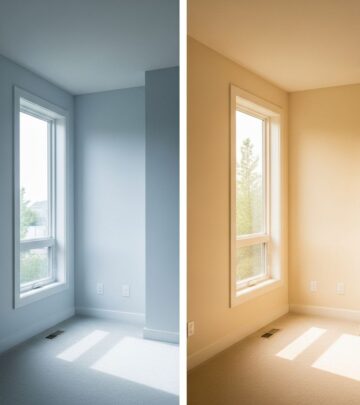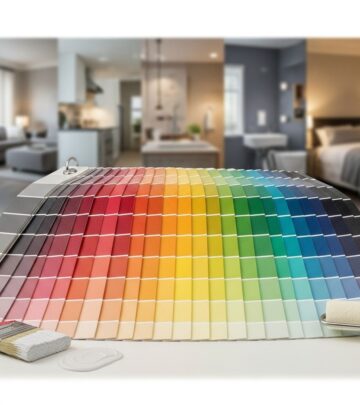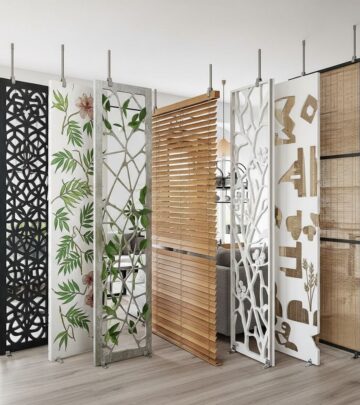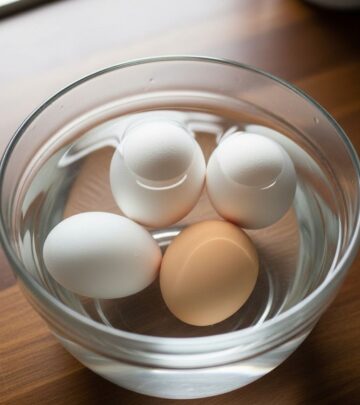Boiler vs Water Heater: What You Need To Know Before Choosing
Discover which heating system is right for your home: boilers or water heaters compared
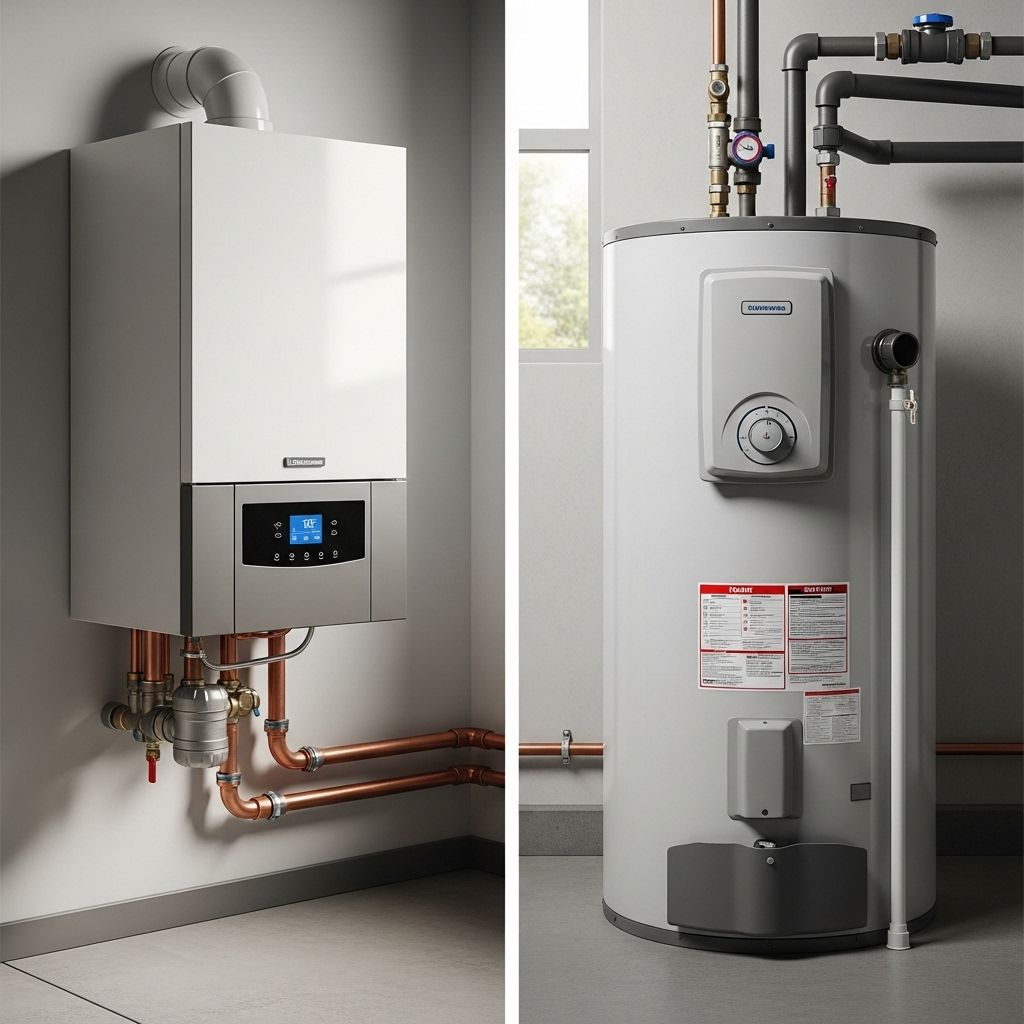
Image: HearthJunction Design Team
Understanding the Differences Between Boilers and Water Heaters
When it comes to heating water in your home, two common systems are often confused: boilers and water heaters. Despite both involving heated water, these systems serve different purposes and function in distinct ways. Understanding these differences is crucial when deciding which system is right for your home, especially when facing a replacement or new installation.
Both boilers and water heaters are essential components in modern homes, but they operate differently and serve separate functions. This comprehensive guide will explore their fundamental differences, helping you make an informed decision about which system best suits your household needs.
What Is a Boiler?
A boiler is a heating system that heats water to provide warmth throughout your home. Unlike water heaters, boilers aren’t primarily designed to provide water for domestic use like showering or washing dishes. Instead, they heat water to near-boiling temperatures, creating hot water or steam that circulates through a closed-loop system to radiators, baseboard heaters, or radiant floor systems throughout your home.
Boilers can be powered by various energy sources, including natural gas, propane, oil, or electricity. They’re particularly common in older homes and colder climates where their ability to provide consistent, even heat is highly valued.
How Boilers Work
Boilers function by heating water in a closed system. The heated water or steam travels through pipes to radiators or other heat exchangers positioned throughout the home. As the water or steam cools, it returns to the boiler to be reheated, creating a continuous circulation loop. This closed-loop system means the same water is continuously reheated rather than being consumed.
Most modern residential boilers operate at temperatures between 180°F and 200°F, which is substantially hotter than the water from your tap but generally below actual boiling point. The higher temperature is necessary for effective heat transfer to warm your living spaces.
What Is a Water Heater?
A water heater, in contrast to a boiler, is specifically designed to heat water for domestic use—showers, baths, washing dishes, and laundry. This water is intended for consumption and direct use, making it potable (safe to drink). Water heaters typically heat water to around 120°F-140°F, which is hot enough for household use but well below boiling to prevent scalding.
Water heaters come in two main varieties: traditional tank models that store and heat a reservoir of water, and tankless (on-demand) models that heat water as it’s needed. Both types are designed exclusively for providing hot water for domestic use rather than for heating your home.
How Water Heaters Work
Traditional tank water heaters store a predetermined amount of water (typically 40-80 gallons) and maintain it at a set temperature. When hot water is used in the home, cold water enters the tank to replace it, and the heating element activates to heat the new water.
Tankless water heaters, also known as demand-type or instantaneous water heaters, don’t store hot water. Instead, they use powerful heating elements that are activated when a hot water tap is turned on, heating water as it flows through the unit. This provides an endless supply of hot water but at a limited flow rate.
How Boilers and Water Heaters Are Different
While both systems heat water, their purposes, functionality, and characteristics differ significantly:
| Feature | Boilers | Water Heaters |
|---|---|---|
| Primary Purpose | Space heating via radiators or radiant systems | Providing hot water for domestic use |
| Water Safety | Water not safe for consumption | Water safe to be consumed |
| Water Temperature | Water heated close to boiling (180-200°F) | Water heated far below boiling (120-140°F) |
| System Type | Circulating (closed loop) | Non-circulating (open system) |
| Fuel Options | Gas, oil, electricity, propane | Gas, electricity, propane |
| Lifespan | 15-25 years | 8-12 years (tank), up to 20+ years (tankless) |
Functionality Differences
The fundamental difference between boilers and water heaters lies in their functionality. Boilers are primarily heating systems that warm your home through radiators or radiant floor systems. While some boilers can be configured to provide domestic hot water through an indirect water heater or a hot water storage tank, this is secondary to their main purpose.
Water heaters, by contrast, are solely designed to provide hot water for domestic use and play no role in heating your home. They’re simpler systems focused on one specific task: delivering hot water to your taps and appliances.
Efficiency Considerations
The efficiency of a water heater or boiler depends significantly on the type of unit and how it’s being used. Generally, water heaters are more energy-efficient than boilers, with tankless water heaters being even more efficient than traditional tank models. Heat pump water heaters are particularly impressive, offering two to three times greater energy efficiency than conventional water heaters.
That said, boilers have their own efficiency advantages. They’re typically more energy-efficient than traditional furnaces for home heating. High-efficiency boiler models can achieve impressive performance, though they come with higher upfront and repair costs.
When comparing efficiency between these systems, it’s important to remember they’re designed for different purposes, making direct comparisons challenging. The most efficient choice depends on your specific needs, climate, home layout, and existing infrastructure.
Installation Costs
One of the most significant practical differences between boilers and water heaters is their installation cost. Boilers are substantially more expensive to install, with average costs ranging from $3,000 to $11,000 depending on the model’s efficiency. High-efficiency boilers typically cost between $6,000 and $11,000 installed, while standard models range from $3,000 to $6,000.
Water heaters, by comparison, are much more affordable. A new traditional tank water heater costs approximately $1,200 on average, including installation. Tankless options range from $1,000 to $3,000, while high-efficiency models can cost between $700 and $3,000, with installation adding $150 to $1,500 to these figures.
These cost differences reflect the greater complexity of boiler systems, which require more extensive piping, controls, and often modifications to existing systems during installation.
Maintenance Requirements
Both systems require regular maintenance, but their needs differ:
Water Heater Maintenance: Tank water heaters need regular flushing to remove sediment buildup, along with periodic inspection and replacement of the anode rod, which prevents corrosion. Tankless models require descaling to prevent mineral buildup, particularly in areas with hard water. Generally, water heater maintenance is straightforward and can often be performed by homeowners with basic DIY skills.
Boiler Maintenance: Boilers require more complex maintenance, including checking pressure levels, inspecting for leaks, cleaning or replacing filters, and ensuring proper venting. Most boiler maintenance should be performed by professional technicians due to the system’s complexity and the potential safety issues involved with improper servicing. Annual professional inspections are strongly recommended for boiler systems.
Lifespan Comparison
When properly maintained, boilers generally outlast water heaters by a significant margin. The average boiler has a lifespan of 15-25 years, with some well-maintained systems lasting even longer. This longevity is partly due to their robust construction, designed to withstand higher pressures and temperatures.
Water heaters typically have shorter lifespans. Traditional tank models usually last 8-12 years, while tankless systems can operate effectively for 20 years or more. Regular maintenance can extend the life of either system, while neglect will shorten it considerably.
Which System Is Right for Your Home?
Choosing between a boiler and a water heater depends on several factors specific to your home and needs:
Consider a Boiler If:
- You live in a cold climate where consistent, even heating is important
- Your home already has radiators or radiant floor heating infrastructure
- You prefer the type of heat provided by radiators or radiant systems
- You’re willing to invest more upfront for a longer-lasting system
- You have space for a boiler system and its components
Consider a Water Heater If:
- You have a separate heating system (like a furnace) already in place
- You’re on a tighter budget for installation
- You have limited space for heating equipment
- You want a simpler system with more straightforward maintenance
- You’re in a warmer climate where heating needs are minimal
Frequently Asked Questions (FAQs)
Q: Can a boiler provide domestic hot water?
A: Yes, many boilers can be set up to provide domestic hot water through an indirect water heater or a hot water storage tank, making them dual-purpose systems that handle both home heating and hot water for household use.
Q: Are tankless water heaters worth the extra cost?
A: Tankless water heaters cost more initially but offer energy savings, endless hot water, and a longer lifespan. They’re particularly valuable for households with high hot water demand or limited space for a traditional tank.
Q: How often should I service my boiler or water heater?
A: Boilers should be professionally serviced annually to ensure safe, efficient operation. Water heaters benefit from annual maintenance too, including tank flushing for traditional models or descaling for tankless units.
Q: Which system is more environmentally friendly?
A: High-efficiency models of both systems can be environmentally friendly. Heat pump water heaters and condensing boilers are particularly efficient options. The most eco-friendly choice depends on your home’s specific setup and your local energy sources.
Q: Can I replace a boiler with a water heater?
A: No, these systems serve different primary purposes. If you currently use a boiler for home heating, you would need to install a different heating system (like a furnace) along with a water heater to replace the boiler’s functions.
Making Your Decision
Understanding the differences between boilers and water heaters is essential when planning for new construction or system replacement. While both heat water, they serve distinct purposes in your home. Boilers primarily provide space heating through radiators or radiant systems, while water heaters focus exclusively on providing domestic hot water for daily use.
Consider your climate, existing home infrastructure, budget constraints, and personal preferences when making your choice. For many homes, the decision may already be predetermined by existing systems, but for new construction or major renovations, carefully weighing these factors will help ensure you select the system that best meets your household’s needs for years to come.
References
Read full bio of Shinta


